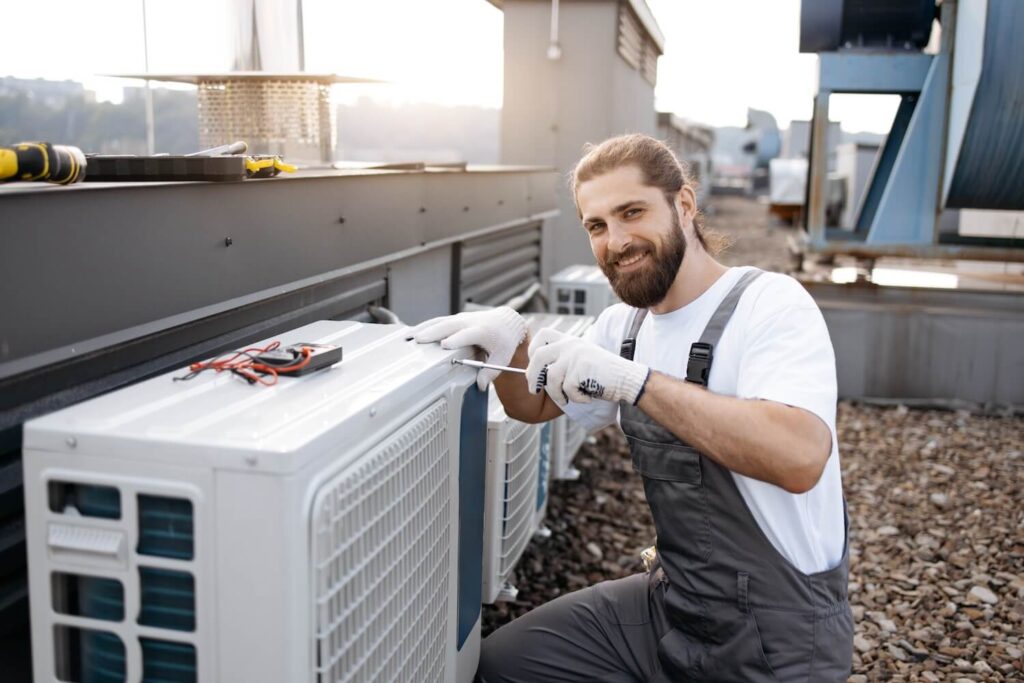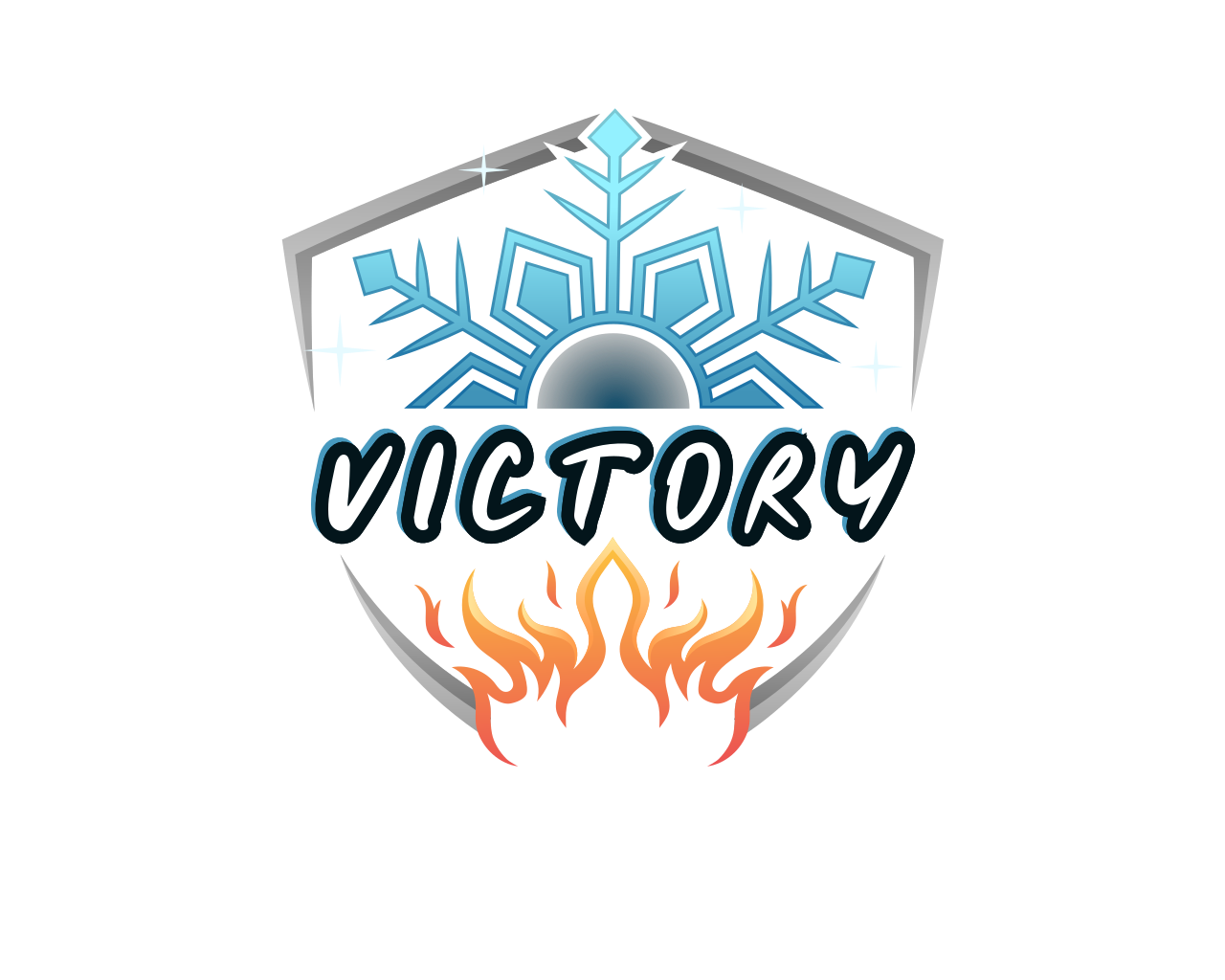
Air conditioning is more than just a luxury—it’s a necessity, especially during the sweltering summer months. A functioning AC unit ensures comfort, improves indoor air quality, and even helps protect furniture and electronics from heat-related damage. But what happens when your AC starts acting up? Many homeowners overlook small warning signs, only to find themselves facing costly breakdowns at the worst possible time.
Understanding the early warning signs of AC trouble can save you money, stress, and discomfort. While some minor issues can be handled with basic troubleshooting, others require the expertise of a professional HVAC technician.
In this guide, we’ll explore the top signs that your AC unit needs repair, discuss possible causes, and explain why calling in a professional may be the smartest decision you can make.
1. Weak or Warm Airflow: Is Your Home AC Struggling?
When you set your thermostat to a comfortable temperature, you expect your air conditioning system to deliver a strong, steady stream of cool air. However, if you notice that the airflow from your vents feels weak or, worse, warm, your AC may be struggling to function properly. This is one of the most common signs of a failing system and should never be ignored. Left unaddressed, weak or warm airflow can cause your home to feel stuffy and uncomfortable, drive up energy costs, and even lead to bigger mechanical failures down the road.
AC Repair Signs to Watch For:
- The air coming out of your vents feels warm instead of cool.
- Airflow is weak, even when the AC is set to high.
- Some rooms feel cooler than others, or you notice hot spots in your home.
Potential Causes:
Several issues can cause weak or warm airflow, but pinpointing the exact cause can be tricky without professional tools.
- Dirty or Clogged Air Filters – A clogged filter restricts airflow, making it harder for your AC to cool your home efficiently. Filters should be replaced every 1–3 months to maintain peak performance.
- Blocked or Leaky Ducts – Ductwork plays a critical role in distributing cooled air throughout your home. If there are leaks or blockages, some rooms may not receive proper airflow. A professional duct inspection can identify and fix these issues.
- Refrigerant Issues – If your AC is low on refrigerant, it will struggle to cool your home. Unlike a car, you can’t just “top off” refrigerant—it needs to be handled by a licensed technician who can check for leaks and recharge the system safely.
- Failing Blower Motor or Fan – The blower motor pushes air through your system, and if it’s malfunctioning, you’ll notice weaker airflow. Diagnosing and replacing a failing blower motor requires specialized knowledge.
Why Professional Repair is Best:
While changing an air filter is a simple fix, other airflow issues are more complex. Leaky ducts, refrigerant problems, and motor failures require specialized tools and knowledge. A professional AC repair technician can quickly diagnose and fix the problem, restoring your AC’s efficiency and preventing further damage.
2. Unusual Unit Noises: What’s That Sound Coming from Your AC?
Your air conditioner should run relatively quietly, with only a low hum or gentle whooshing sound as air flows through the vents. If you start hearing strange or loud noises coming from your unit, it’s a clear indication that something is wrong. While some sounds may seem minor, they often point to underlying problems that can worsen if ignored.
Signs to Watch For:
- Banging, rattling, or clanking noises when the AC is running.
- High-pitched squealing or screeching sounds.
- Hissing or bubbling noises.
Potential Causes:
Strange noises are never a good sign. They often indicate internal wear and tear that, if ignored, can lead to total system failure.
- Loose or Broken Components – Over time, screws, belts, and other moving parts can become loose. A professional can tighten and secure these parts before they cause further damage.
- Refrigerant Leaks – A hissing sound often signals a refrigerant leak. This is a serious issue because refrigerant is hazardous and should only be handled by certified technicians.
- Compressor Problems – If you hear a loud banging or rattling, your AC’s compressor may be failing. Replacing a compressor is a job best left to an experienced HVAC technician.
- Fan Motor Issues – Squealing sounds often indicate that the fan motor is wearing out or needs lubrication. Ignoring this issue can result in complete motor failure.
Why Professional Repair is Best:
Many homeowners try to ignore strange AC noises, hoping they’ll go away. Unfortunately, problems that cause these noises only worsen over time. A professional technician can quickly identify the source of the sound and make necessary repairs before a minor issue turns into a costly replacement.
3. Frequent Cycling or AC Running Constantly
A properly functioning air conditioner follows a predictable cooling cycle—it runs until your home reaches the desired temperature, then shuts off until cooling is needed again. However, if you notice your AC turning on and off too frequently (short cycling) or running non-stop without effectively cooling your home, something is wrong. These issues can place significant strain on your system, leading to higher energy bills, reduced efficiency, and even premature system failure.
Signs to Watch For:
- Your AC turns on and off repeatedly in short bursts (short cycling).
- The system runs constantly but never reaches the desired temperature.
- Your energy bill has suddenly increased without a change in usage.
Potential Causes:
Frequent cycling or constant operation can be a sign of an underlying problem that’s forcing your AC to work harder than it should.
- Thermostat Issues – If your thermostat is malfunctioning, it may not be communicating properly with your AC, causing erratic cycling.
- Dirty or Frozen Evaporator Coils – Coils covered in dirt or ice can’t absorb heat properly, forcing your AC to overwork. Cleaning or thawing them can help, but the underlying cause must be addressed.
- Oversized or Undersized AC Unit – If your AC is too large, it will short cycle; if it’s too small, it will struggle to cool your home. A professional HVAC technician can determine whether your unit is properly sized for your home.
Why Professional Repair is Best:
Ignoring this issue can shorten your AC’s lifespan and lead to expensive repairs. An HVAC expert can diagnose the root cause, recalibrate your thermostat, clean internal components, and recommend a long-term solution.
4. Unpleasant Odors Coming from Your Home Vents
Your air conditioner is designed to keep your home comfortable, but when unpleasant smells start coming from your vents, it can quickly make your space feel uninviting. Foul odors coming from your AC are more than just a nuisance—they can indicate underlying issues that need immediate attention. Identifying the type of smell can help determine the root cause and whether professional intervention is necessary.
Signs to Watch For:
- A musty, moldy smell when your AC runs.
- A burning or electrical smell coming from the vents.
Potential Causes:
- Mold or Mildew Growth – Excess moisture in your system can lead to mold growth in your ducts or AC unit. This is not only unpleasant but also a health hazard.
- Electrical Issues – A burning smell may indicate overheating components or melting insulation, which can pose a fire risk.
Why Professional Repair is Best:
Mold and electrical issues should never be ignored. A professional can thoroughly clean your system, identify moisture sources, and repair electrical problems before they become serious safety hazards.
5. AC Not Turning On
Signs to Watch For:
- The AC unit doesn’t start, even when the thermostat is set correctly.
- The breaker trips every time the AC tries to start.
Potential Causes:
- Tripped Circuit Breaker – Resetting a tripped breaker may solve the issue, but frequent trips indicate an electrical problem that requires professional attention.
- Blown Capacitor – The capacitor is responsible for starting the AC motor. A failed capacitor needs to be replaced by a technician.
- Thermostat Malfunction – If your thermostat isn’t sending the right signals, your AC won’t turn on.
Why Professional Repair is Best:
Electrical components inside an AC unit should never be handled without proper training. Attempting a DIY fix can be dangerous and may even void your warranty. A professional can safely diagnose and repair electrical issues, restoring your system’s functionality.
Final Thoughts: Why Professional AC Repair is Worth It
Your air conditioner is one of the most important systems in your home, keeping you comfortable when temperatures soar. But like any hardworking appliance, it requires proper care to function efficiently. Ignoring the warning signs—whether it’s weak airflow, strange noises, or skyrocketing energy bills—can lead to costly breakdowns, uncomfortable living conditions, and even safety hazards.
While some AC maintenance tasks, like changing air filters, are simple enough to handle on your own, most repairs require professional expertise. A certified HVAC technician doesn’t just fix the immediate issue—they diagnose underlying problems, optimize your system for efficiency, and ensure your AC runs smoothly for years to come. Investing in professional repair now can prevent expensive replacements later, lower your energy costs, and give you peace of mind knowing your home will stay cool and comfortable no matter how high the temperatures rise.
When your AC shows signs of trouble, don’t take chances with quick DIY fixes or delay necessary repairs. Trust Victory AC and Refrigeration to get the job done right, so you can enjoy a stress-free, refreshingly cool home all season long.
